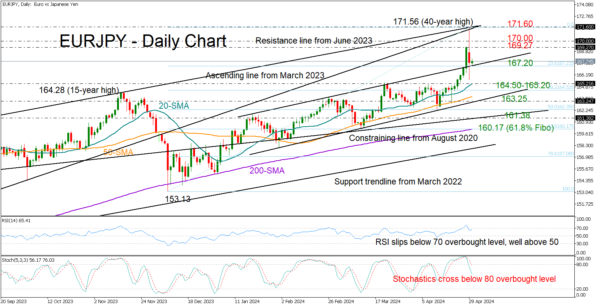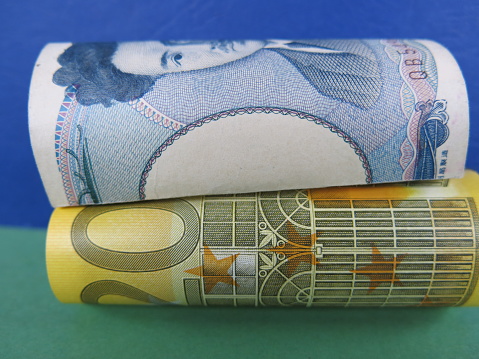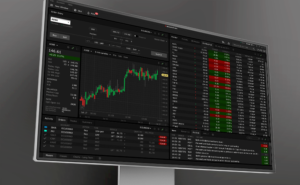- EURJPY stabilizes after Japan-driven volatile session
- Bears wait for action below the 167.20 support area
- Eurozone’s flash CPI inflation due at 09:00 GMT
EURJPY rose rapidly to an almost 40-year high of 171.56 on Monday thanks to a suspected intervention from Japanese authorities. But the spike faded immediately, with the price diving to a low of 165.63 before closing the day near 167.54 in the aftermath.
Technically, the resistance line from June 2023, which led to the decline in November 2023, has once again hindered the aggressive bullish movement, increasing the likelihood of a downward reversal as both the RSI and stochastic oscillator have reached their peak in the overbought zone. Recall that the pair has been rising almost every single day since April 15. Hence, some stability would not be very surprising.
The broken January resistance line is assisting the 23.6% Fibonacci retracement of the December-April uptrend in buffering downside pressures near 167.20. If that floor cracks, the pair could slump towards its 20-day simple moving average (SMA) at 165.20 and perhaps test the 38.2% Fibonacci mark of 164.52 too. Then, the spotlight might fall on the 50-day SMA and the support trendline from February at 163.25, a break of which could see an extension towards the constraining ascending line from August 2020 at 161.38.
Alternatively, the bulls might strive to reach Friday’s closing price of 169.27. A successful outcome there could make the 170.00 psychological mark visible again, and if it’s easily broken, the pair could move towards the long-term resistance line at 171.60. The 175.00 round level could be the next target.
The possibility of EURJPY repeating Monday’s impressive rally is uncertain, but there could be ongoing upward pressures if the base at 167.20 holds.










